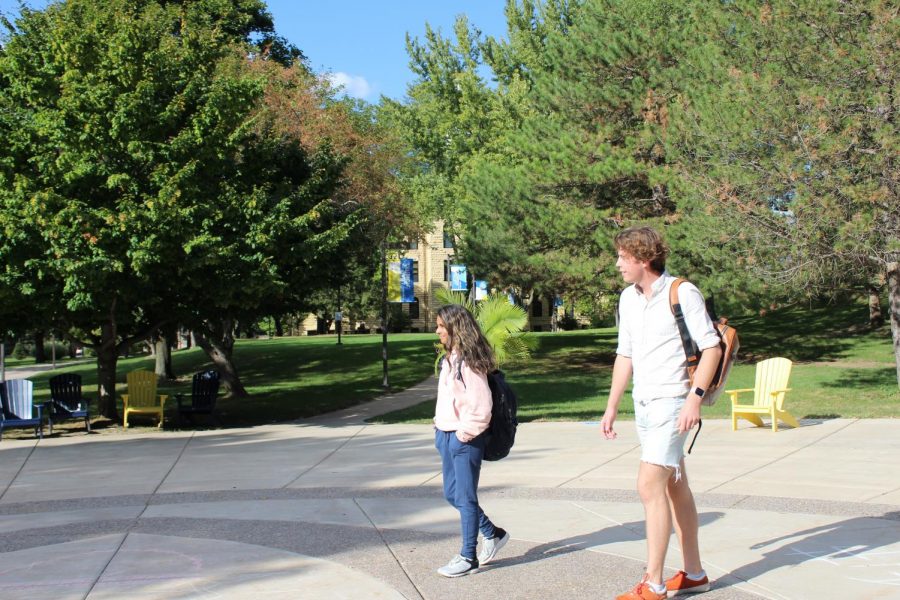Students return to in-person learning
Sophomore Pooja Mehr walks towards Olin after her art 211 class on Sept. 22 on the quad. She walks with her classmate Erik Pattersson.
October 10, 2021
Augustana College transitioned fully back to in-person classes for the fall semester of the 2021-2022 academic year. The students were notified over the summer and are now attending all classes in person.
To follow CDC guidelines, the campus is required to wear masks indoors and use an app called campus clear. Students are required to fill out how they are feeling on the app to get access to dining services.
The campus safety precautions make it easier for students and faculty to stay safe while also engaging students more.
Senior Lauren Palmer said she appreciates the precautions that are being taken and is ready to go back to in-person classes.
“I feel safe. I know a good majority of people are vaccinated,” Palmer said.
From the student’s point of view, staying engaged in classes now is a lot easier than it was last semester because of minimal distractions.
Sophomore Jorge Ocampo had issues last year staying motivated in online classes.
“I struggled to stay focused and stay engaged in my classes because online it is pretty easy to get distracted and not be able to stay focused since the teacher is not there right next to you,” Ocampo said.
With the return of in-person classes comes the return of campus life, events and activities.
“It just isn’t the same experience as doing [activities] in-person,” Ocampo said.
One aspect students may miss about the online option is flexibility.
“[I will miss] the ability to get up early to get ready for class and the ability to jump out of bed and be able to go online,” Ocampo said.
Mark Safstrom, associate professor of Scandinavian studies, said he noticed that students are excited to be back in person. In comparison to last year, he said students are more engaged.
“The student morale is pretty high. Actually, people seem very positive to be back in the classroom… because they are experiencing more normalcy,” Safstrom said.








































































































